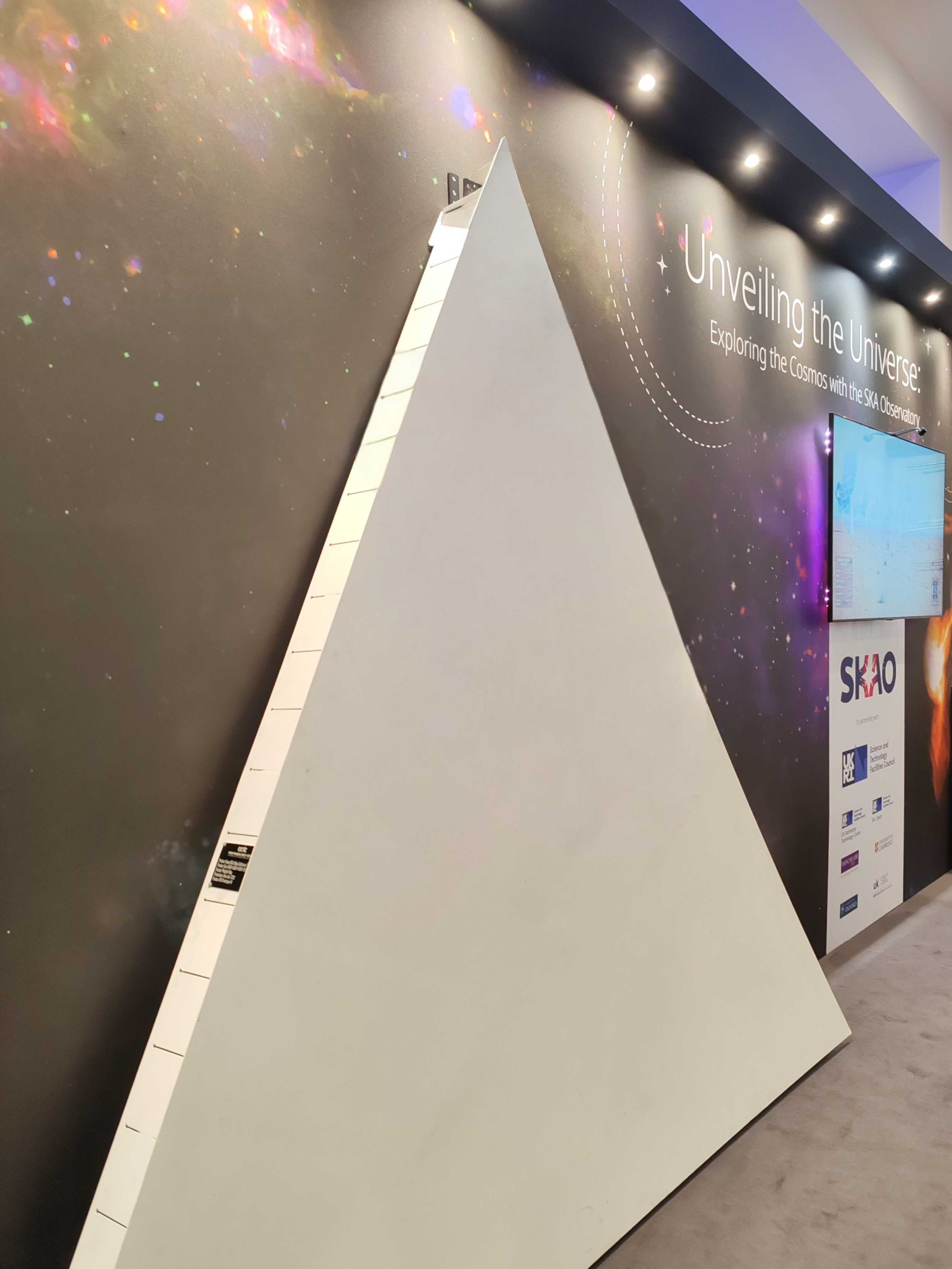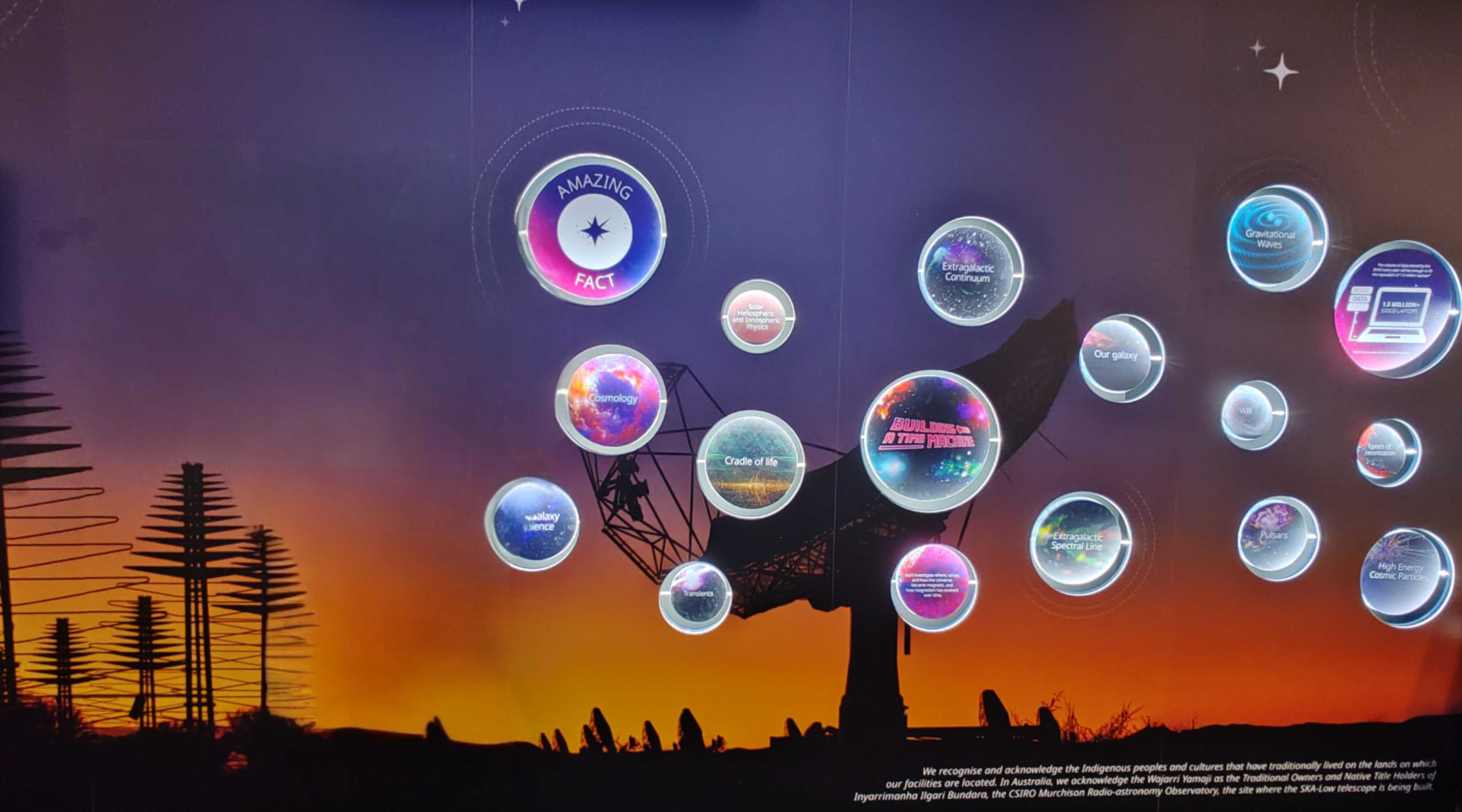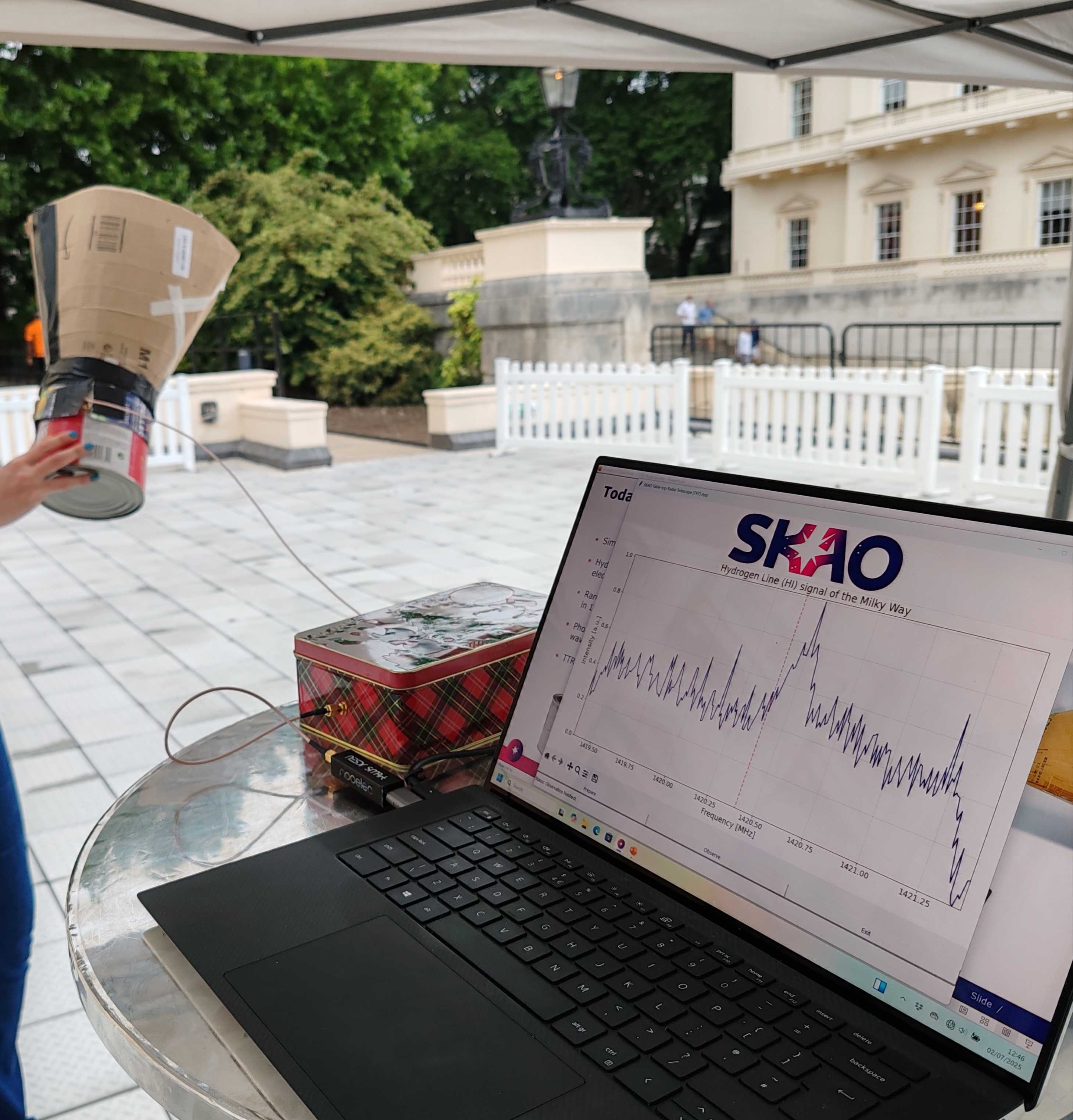Unveiling the Universe with the SKAO at the Royal Society Summer Science Exhibition 2025
UKSRC team members made up part of the army of volunteers from across the UK at the year’s Royal Society Summer Science Exhibition.
Lara Alegre (Research Scientist, University of Hertfordshire) and Andrew Gordon (Programme Manager, University of Manchester) joined colleagues from SKAO and STFC at this year’s Royal Society Summer Science Exhibition in London, volunteering as part of the team running the SKAO exhibit.
 One of the 66 panels that make up the surface of an SKA-Mid dish.
One of the 66 panels that make up the surface of an SKA-Mid dish.
The exhibition welcomed thousands of visitors over the week, offering a chance to explore the science behind the Square Kilometre Array and the UK’s involvement in the project. As part of the team of volunteers, Lara and Andrew spoke with school groups, families, and members of the public about how radio telescopes work, what the SKA will study, and how it fits into the wider field of astronomy.
 The future science of the SKA was front and centre as part of the exhibit.
The future science of the SKA was front and centre as part of the exhibit.
The SKAO exhibit featured hands-on activities, radio wave detection experiments, and a display of components from both the SKA-Mid dishes and SKA-Low antennas. These helped visitors understand how the SKA will detect faint cosmic signals and what kind of discoveries it might enable. Hundreds of people stopped by the stand, engaging with the science and asking questions about everything from black holes to data processing.
Lara and Andrew also talked about the role of UKSRC in supporting researchers who will work with SKA data, and how projects like this are changing the way science is done — especially in terms of collaboration, computing, and careers in astronomy.
 On the terrace of the Royal Society building, attendees could try out some live radio astronomy. Try it yourself and build your own tabletop radio telescope!
On the terrace of the Royal Society building, attendees could try out some live radio astronomy. Try it yourself and build your own tabletop radio telescope!